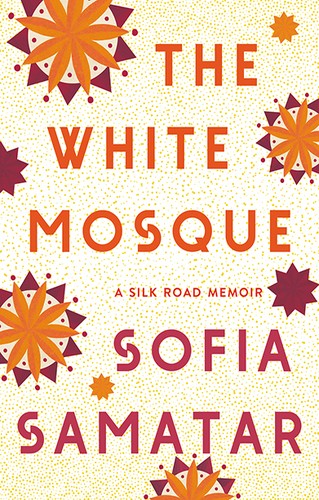Fionnáin reviewed White Mosque by Sofia Samatar
Unearthing sidelined histories
4 stars
Sofia Samatar's unusual memoir The White Mosque is a hard book to categorise. On the surface, it could be described as a travel book of an author taking a journey through historical sites. But it is far more complex and unusual. The author is Mennonite-Muslim with German-Somali heritage, raised in the USA; her skin, education and accent identify her as 'other' in between so many liminal identities that other people place on her. The place is a pilgrimage route in Uzbekistan that was taken in the mid-1800s by Mennonites fleeing conscription in Prussia and Russia. Samatar's colleagues on the journey are the other Mennonite tourist-pilgrims and she is also accompanied by her large catalogue of biographies of those mid-19th Century travellers.
The result is wildly interesting and completely unique. Samatar's brilliant writing helps her cause in telling this story, because it is all so foreign to me that I worried …
Sofia Samatar's unusual memoir The White Mosque is a hard book to categorise. On the surface, it could be described as a travel book of an author taking a journey through historical sites. But it is far more complex and unusual. The author is Mennonite-Muslim with German-Somali heritage, raised in the USA; her skin, education and accent identify her as 'other' in between so many liminal identities that other people place on her. The place is a pilgrimage route in Uzbekistan that was taken in the mid-1800s by Mennonites fleeing conscription in Prussia and Russia. Samatar's colleagues on the journey are the other Mennonite tourist-pilgrims and she is also accompanied by her large catalogue of biographies of those mid-19th Century travellers.
The result is wildly interesting and completely unique. Samatar's brilliant writing helps her cause in telling this story, because it is all so foreign to me that I worried at the beginning I would not be able to persevere with the book, despite the interesting moments. The anecdotes and histories are beautiful but all tinged with sadness and often invaded by violence, and this makes it a hard read at times. It is also an incredible journey and gives space as a reader with little knowledge of either Uzbekistan or Mennonite culture to open up to two things in this complex multicultured world we are lucky to be part of. And for me, this is the gift of this unforgettable book.

